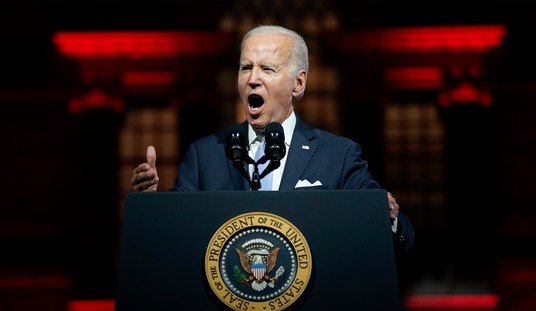The word agenda has two related but distinct political definitions. The first meaning is superficial, as in, “The agenda for this week will be ...” That is, what a political leader or constituency wants to do. The second is deeper, as in, “What’s their agenda?” That means, what does a political leader or constituency really want to do? [# More #]
Advertisement
Right now, Democrats are euphoric about their expectation of run-the-table unity. But once the inaugural balls are over, will the unity hold?
Within the Democrat Party right now, there are at least three important agendas.
The first is that of President-elect Barack Obama, the savior who has brought the Democrats out of the wilderness, the first presidential candidate from his party to win a popular majority in more than 30 years. His primary agenda is to be re-elected in 2012 by what is still a center-right nation. video platform video management video solutions free video player
His career makes clear he is a genuine liberal in ways that Bill Clinton never was, but it also makes clear his primary ambition is ambition. The selection of Rep. Rahm Emanuel (D-Ill.) as his chief of staff sends several messages, but the clearest one, it seems to me, is that Obama has no plans to repeat the mistakes of Bill Clinton’s first two years in office.
This administration’s honeymoon will not be derailed by gays in the military, any whiff of incompetence, or strange mini-scandals about firing secretaries and the like. Rahm Emanuel is a liberal, but he’s no fool. He’s the one who urged Democrats in the 2006 midterms to run moderate, middle-class- oriented campaigns to take back Congress. He knows what side his party’s bread is really buttered on, and he’ll prevent unforced errors that annoy the electorate.
Recommended
Advertisement
Unfortunately, the second most important agenda is probably that of Sen. Edward Kennedy (D-Mass.), desperate to finally fulfill his lifelong goal of European-style, universal health care coverage paid for by the taxpayers. Surely Obama would love to be the president who finally delivers on this liberal goal of providing entitlements to the middle class, but will the American people really stomach the tax hikes necessary to afford such a move, in the middle of a recession? What will the dynamics of the party become if, say, a certain Democrat Senator known for her advocacy of nationalized health care starts making noises that the president is road-blocking the fading Lion of the Left from realizing his mythic family’s ultimate dream?
Meanwhile, the third agenda will be that of the liberal interest groups that make up the Democrat coalition and the House Democrat caucus that must retain good relations with them less than two years from a pendulum-swinging election in 2010.
Remember, conservatives believe Obama to be a liberal extremist, but he ran a moderate campaign, promising tax cuts and increased energy production while attacking earmarks and the rigidity of teachers unions. Liberal interest groups are the Democrats’ greatest strength and weakness — they provide unparalleled organization but then demand unparalleled rewards.
They will expect quick action on long- delayed payoffs such as card check for union elections, the Freedom of Choice Act that would force Christian doctors and nurses and hospitals to perform abortions, the so-called Fairness Doctrine, and rolling back the still-popular Republican tax cuts of 2001 and 2003. Obama has indicated he supports all of the above, but will he really be willing to use his political clout for such polarizing displays of power?
Advertisement
The American people just want the economy to improve, and if socialized health care, tax hikes or taxpayer-funded partial-birth abortions arrive before the economy does get better, well, honeymoon over. Obama knows this.
Put yourself in his shoes — trying to get re-elected by a still-conservative-leaning country while fighting off rabid activists, a history-chasing Kennedy, and a suddenly accountable Democrat Congress — and you can see why he would want a well-trained pit bull as his chief of staff.
The most interesting agenda, then, will be the Republicans’. The forces pulling the Obama administration will force the new president to finally make decisions and, for the first time in the public eye, fill his feet with clay. No later than April or May, the 4 percent of Americans who supported Republicans four years ago but not last week will give another look to the GOP. What they see is the single question Republican leaders and conservative activists should be asking themselves now.
The unchecked Democrat government in Washington will naturally lend itself to a cohering of a conservative coalition opposed to it. Conservatives tired of their previous batch of leaders will quickly seek another once the Obama-Pelosi-Reid triumvirate runs the government for a few months.
What is needed then is a new conservatism, a new agenda, an alternative that can be put before the American people when they come looking for one.
Advertisement
I think a Republican agenda that looks like Ronald Reagan’s or the “Contract with America” won’t work — the country has moved on. The specifics must be worked out, but the very idea of Republicanism must become at once clearer and bolder. Tax cuts must be replaced by tax reform — reforms with an eye specifically toward investment, growth and middle-income families. “Slowing the rate of growth” should be replaced with actual spending cuts — better to cut a little than tinker a lot.
In 1994, Republicans ran on 10 promises; in 2010, they might run on only two or three — something along the lines of “Security Abroad, Freedom at Home and Competence in Government.”
The three branches of conservatism — security hawks, social traditionalists and economic libertarians — could all sign on and fill in their own blanks. Alternative proposals should be advanced against every policy Congressional Democrats propose — and they should all be simpler, easier to implement, more accountable to the people and less costly to the taxpayer. This kind of reinvention is good for conservatism — it’s good every decade or so to reassess and recalibrate the common goals.
And the timing couldn’t be better. I cannot stress this enough — the Democrats, for the first time in a very long time, are unable to avoid the consequences of their actions. The most significant consequence they face should be a unified and unifying conservative plan of government that reminds the American people why they became Republicans in the first place. Forging that plan before President Obama makes his first big mistake is the Republican agenda, in both senses of the word.
Advertisement
























Join the conversation as a VIP Member